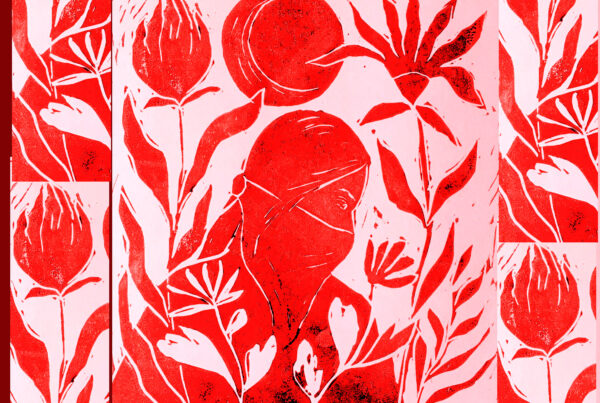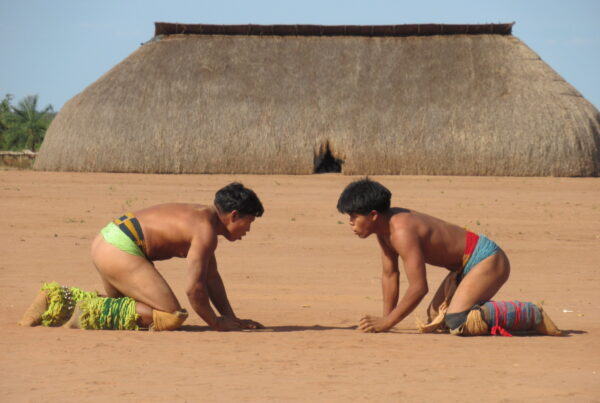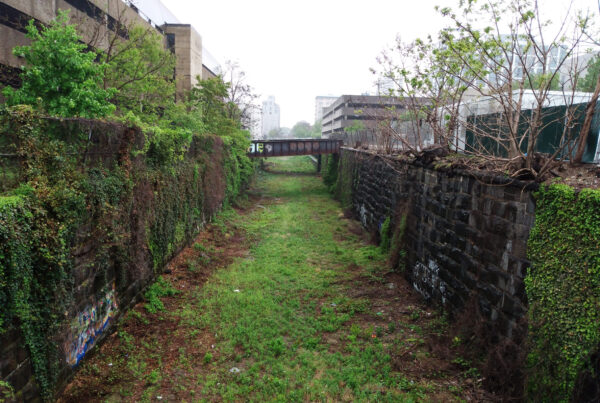FUNAI, Brazil’s National Indigenous Foundation, is accused of ignoring a serious conflict between two indigenous tribes in the Amazon.
Two hours after the original version of this text was published in Carta Capital, FUNAI informs about first contact omitting information about massacre.
A “tribal war,” following the omission of the state, reportedly provoked a massacre of members of the indigenous Korubo tribe, according to information that came to light at the end of September. FUNAI, Brazil’s National Indigenous Foundation, is still investigating the case and estimates between 7 and 15 dead. The conflict, in the Amazon’s Javari Valley, began with the assassination of two members of the Matis ethnicity in December of 2014, and has developed amid a deep crisis in the management of FUNAI’s isolated tribes department.
Reports so far indicate that the Matis, after alerting FUNAI and requesting an audience with the foundation’s president to discuss the pacification of the area, retaliated the Korubo’s December attack. The two ethnicities share an area in the Javari Valley Indigenous Reservation, and lately their encounters have been marked by violence. After the recent deaths, the Matis themselves conducted forced contact with the Korubo, near the Tawaya village, on the 26 September. Initially there were 10 people, with an additional 11 members of the isolated tribe arriving on 10 October. The difficulty in knowing the number of dead people comes from the tribesmen not mentioning the names of those who died. According to reports, the tribespeople contracted contagious respiratory diseases and some show bullet wounds. A newborn child died in the first half of October. Initially, the Matis told assistance groups that the isolated Korubo tribespeople were emaciated.
Marke Turu, of the Matis’ association (AIMA), claims that they repeatedly warned FUNAI about the extent of the conflict, requesting the foundation’s assistance and an audience in Brasília, but have yet to receive an answer. “If something happens to the Matis again, they may want to retaliate. The problems with the isolated Korubo must be resolved. If they don’t provide pacification, there could be more violence,” he warns.
The Javari Valley is the region with the highest density of isolated tribes in the world. It is a vast protected area, currently facing the most pressure from fishermen and hunters, loggers, and drug traffickers. The main mode of transportation is by river and it can take days, if not weeks, to travel within it. In many cases the isolated tribes share territory with contacted ones, and many Korubo groups live in isolation in the region, in addition to other unknown ethnicities. The first contact with the Korubo occurred in 1996, in an expedition led by the sertanista (or “backwoods contact agent” of FUNAI) Sydney Possuelo. No one from the tribe died, but one FUNAI worker was killed by the indians. Since then, there have only been occasional meetings or sightings on the edge of rivers. For example, the same group that has now been contacted by the Matis had been spotted and photographed by a medical team in 2007 on the edge of the Ituí River. Recently there has been an increase in conflicts between isolated tribes and other contacted tribes, as well as reports of epidemics, mainly malaria, among those isolated. Last year, a group of 16 Korubo made contact with FUNAI agents. It was concluded that they had contracted diseases prior to contact and were dying of malaria or flu.
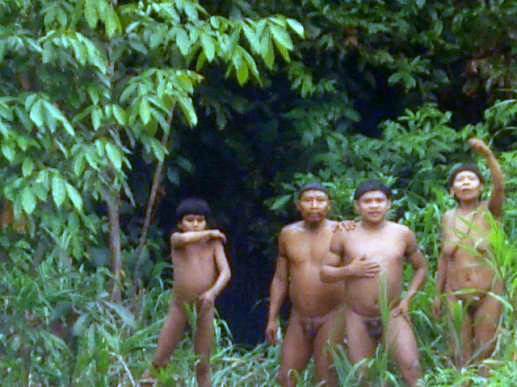
Mati leaders say they have asked for support, but their pleas were not heard (Funai). Source: http://www.cartacapital.com.br/revista/877/guerra-e-omissao-1442.html
The Matis had warned FUNAI about the presence of isolated people in plantation areas, on the edges of rivers, and in occasional sightings during hunts, and were worried that there could be a conflict. On 5 December, a group of six Korubo attacked the Matis near the Todawak village, on the Coari River, killing two, Ivan Matis and Dame Matis. The Javari Indigenous People’s Union (UNJAVA) formally requested FUNAI’s assistance to mediate the conflict, and requested a meeting in Brasília to devise a pacification strategy. Some tribespeople, on the other hand, according to a letter from AIMA, said that “such a problem should be solved between the tribes in the traditional manner.” With their requests ignored, AIMA blames the deaths on FUNAI’s mistakes, starting with the contact by the 16 Korubo prior to the killing of the two Matis.
There are many complaints in relation to the foundation. Despite being aware of the potential for bloody conflicts in the Javari Valley and the need for more technicians on the field, Carlos Travassos, the general coordinator of isolated tribes, ordered specialized staff to help the daughter of government minister Aloizio Mercadante, who is currently producing a documentary on isolated tribes in the state of Mato Grosso. Rather than being sent to support emergency efforts, one of FUNAI’s most experienced sertanistas was sent to help filming being done by the director Renata Terra and Mariana Mercadante, daughter of the former Chief of Staff and a personal friend of Travassos, who were trying to locate another recently contacted group, the Piripkura, a Tupi-Kawahiwa subgroup. It has been confirmed that the attempt at contact was unsuccessful and was conducted solely for the documentary. By phone, Carlos Travassos refused to speak publicly about these occurrences.
The department of isolated tribes has been in an internal crisis ever since veteran sertanistas, some retired and others still in activity, formally accused Travassos, in two different letters delivered to FUNAI’s president in August, of mismanagement and committing a series of wrongdoings, demanding he resign. Among the problems reported was the lack of attention to the imminent conflict in the Javari Valley, as well as a cooperation project with the organization Centro de Trabalho Indigenista, through a contract with BNDES, Brazil’s development bank, via the Fundo Amazônia. The Fundo Amazônia is a fund composed of donations by the governments of Norway and Germany to stop deforestation in the Amazon.
If between 1997 and 2013 there were only two cases of contact with isolated tribes in the Brazilian Amazon, there have now been four cases in the past two years. In two of these, the tribes reported deaths by gunfire just before contact. In all cases, they had already contracted epidemics before contact, such as flu or malaria. For this reason a report by the specialist Antenor Vaz says that the “policy of non-contact is becoming rhetorical fiction.”
All of these recently contacted indigenous groups required special assistance. In the Javari, there are the 21 Korubo contacted in September by the Matis, in addition to the 16 contacted last year. In the state of Acre, of the 38 Sapanawa contacted in July of last year, at least one currently has pneumonia and, without food, part of one group moved near a non-indigenous community, leaving them even more vulnerable. In this case, as in the others, indigenists and anthropologists accuse FUNAI of negligence. Until 2010, Funai maintained permanent plantations in the area, such as manioc and banana, which could feed up to 200 people, in a strategy planned by the sertanista José Carlos Meirelles. FUNAI’s current management abandoned this base camp in 2011. After these contacts, conducted by the Ashaninka people (one image that traveled the world shows an Ashaninka offering bunches of bananas to the Sapanawa), rather than providing food to these tribes in the traditional manner, through plantations of manioc, banana or papaya, FUNAI contracted a team specialized in “permaculture,” introducing exotic foods, such as quinoa, grains, lentils… Anthropologists from the state of Acre claim that the negligence could have led to the starvation of these indigenous people.
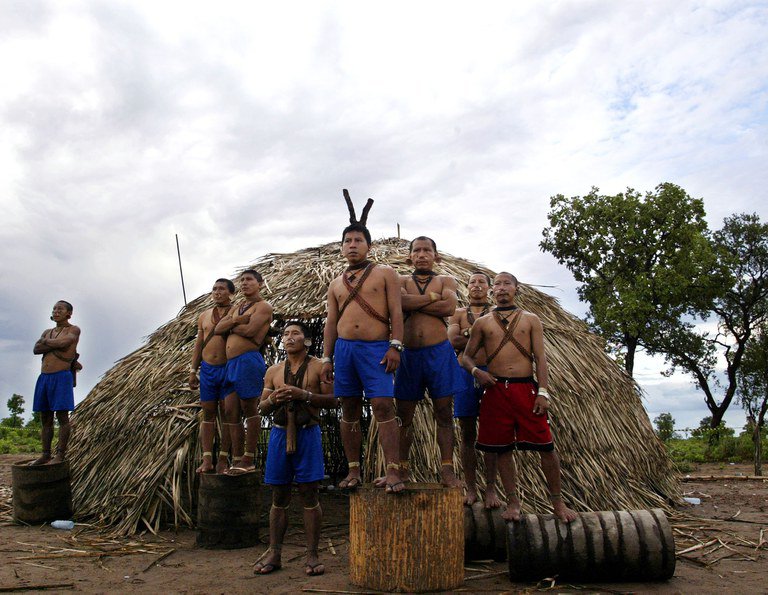
Mati leaders say they have asked for support, but their pleas were not heard (Funai). Source: http://www.cartacapital.com.br/revista/877/guerra-e-omissao-1442.html
The mismanagement also places the foundation’s field workers at risk, and in the Javari Valley they are weakened and exposed. One envoy sent to investigate the massacre was held hostage by the Matis, who accuse FUNAI of a lack of communication. The sertanistas that signed the letter to FUNAI’s president, with the accusations about Travasso’s mismanagement and calling for his resignation, began to suffer political retaliations and persecution. José Carlos Meirelles’ son, who worked at FUNAI for over ten years, was fired. Travassos also called for the dismissal of Fabricio Amorim, which was rejected by a group of FUNAI specialists due to the prominence of Amorim’s work in defending isolated tribes. The sertanistas with most experience in the field, Rieli Franciscato, Altair Algayer and Jair Candor, have offered their resignation if Travassos’ political persecutions continue.
The Ministry of Health has officially informed that the cases of contact with isolated tribes are treated as health emergencies, and that a contingency plan for the case of the Korubo has been put in place. Under monitoring, they claim the respiratory diseases are already under control: “The medical teams established a camp where the group can remain ‘quarantined’ – an isolation procedure necessary for protection and to observe any possible signals or symptoms of diseases contracted after contact. However, with the arrival of the Matis in the camp, it was necessary to extend the monitoring by the medical team, who remain ‘quarantined’.” Isolation to prevent epidemics is essential in situations of contact, but it is politically delicate to be put into practice and should have been conducted by FUNAI, who have yet to send to the field the team needed to ensure the safety of the tribes and the workers.
Originally published at Carta Capital: http://www.cartacapital.com.br/revista/877/guerra-e-omissao-1442.html
Translated by Paulo Padilha
Responses to this article have been published in Portuguese here:
“Outro lado: Mariana Oliva, Renata Terra e Jair Candor”
http://www.cartacapital.com.br/sociedade/outro-lado-mariana-oliva-renata-terra-e-jair-candor-3051.html
“Outro lado: Centro de Trabalho Indigenista”
http://www.cartacapital.com.br/sociedade/outro-lado-centro-de-trabalho-indigenista-4172.html
“As críticas dos sertanistas e indigenistas”
http://www.cartacapital.com.br/sociedade/as-criticas-dos-sertanistas-e-indigenistas-7733.html


